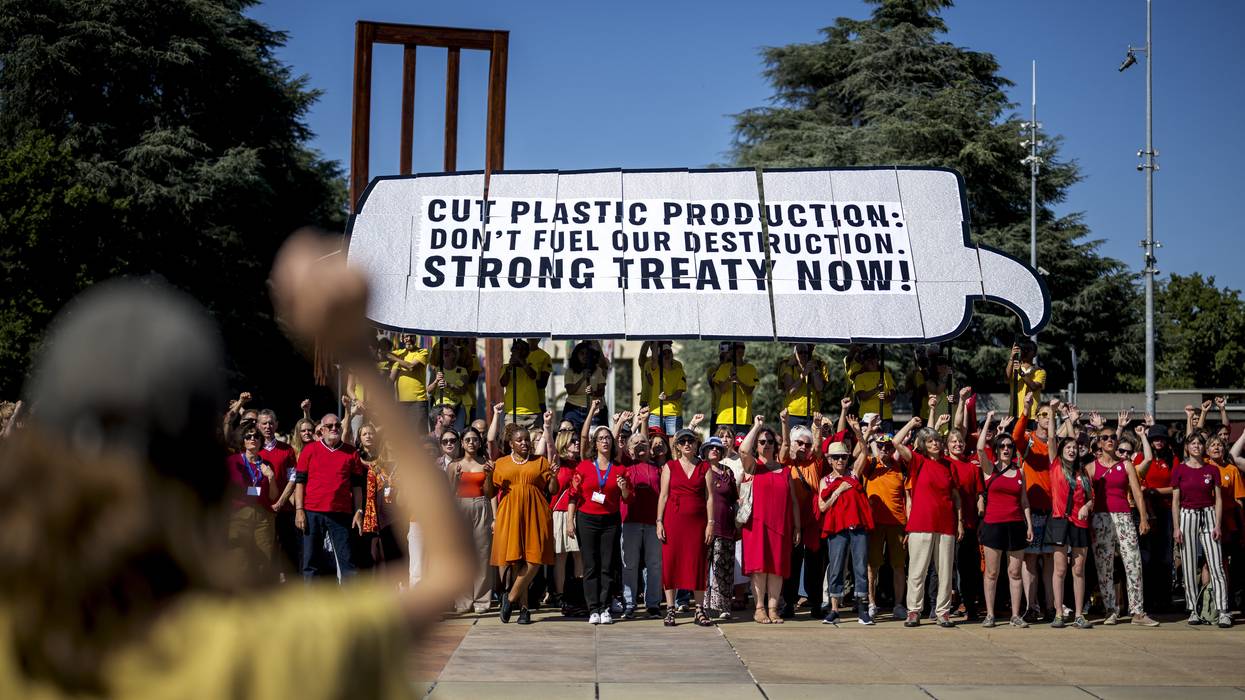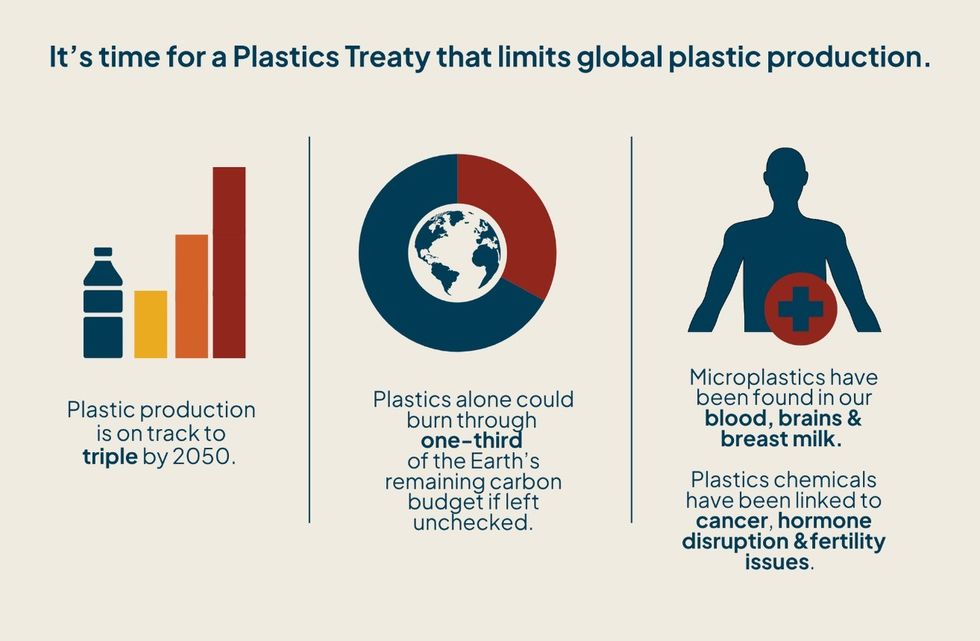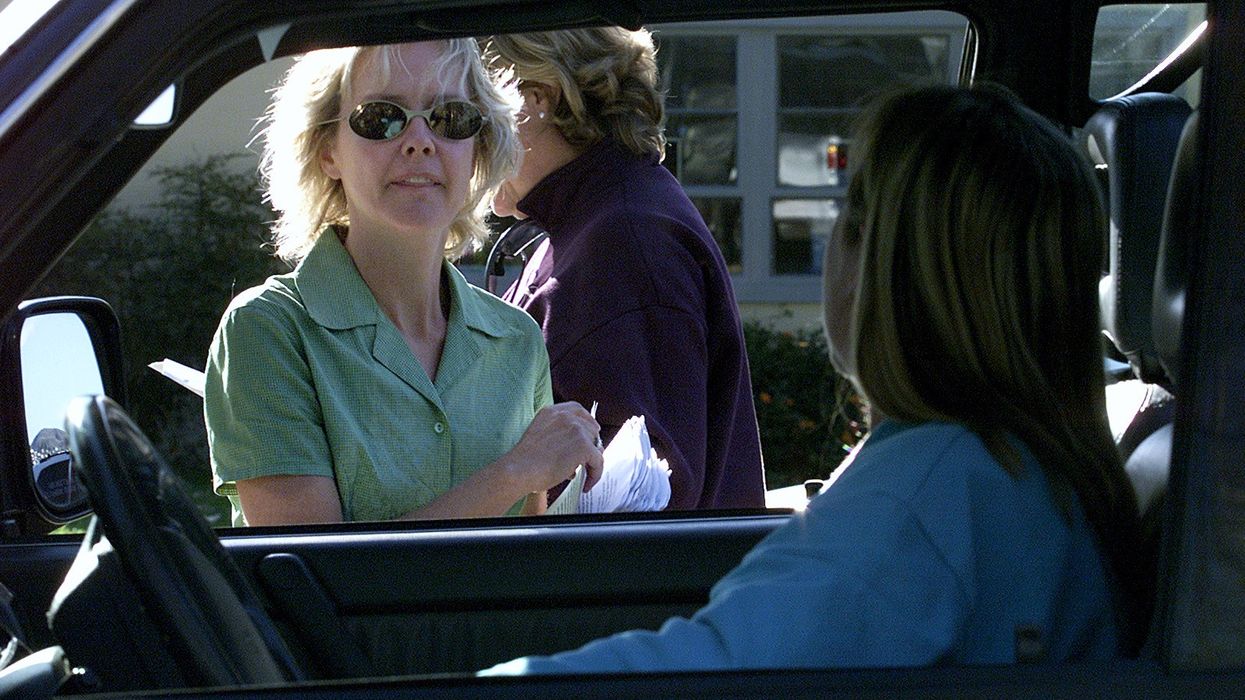The Pesticide Industry’s Fingerprints Are All Over the MAHA Commission’s Strategy Report
Instead of delivering real change, the strategy appears to be just another example of the Trump administration putting the financial interests of polluting industries above people’s health.
When it comes to pesticides, the Trump administration’s Make America Healthy Again, or MAHA, Commission has a serious problem: The Commission's newly released strategy for addressing childhood chronic disease is better for the pesticide industry than for people. Ignoring growing public calls for action, the strategy lays out a milquetoast approach that would protect industry profits at the expense of children’s health.
Back in May, a first report from the MAHA Commission correctly identified exposure to pesticides and other toxic chemicals as one driver of the childhood chronic disease epidemic. The US currently uses over a billion pounds of pesticides annually on our crops, about one-third of which is chemicals that have been banned in other countries. Many have been linked to serious health problems from cancer to infertility to birth defects. Those pesticides contaminate our air, our water, and our bodies. One cancer-linked pesticide, glyphosate, is now found in 80% of adults and 87% of children.
The Commission’s strategy to address pesticide exposure has thus been eagerly awaited by health-conscious moms, environmental advocates, rural Americans like me, and many others. But instead of delivering real change, the strategy appears to be just another example of the Trump administration putting the financial interests of polluting industries above people’s health.
One of the most outrageous elements is a goal to “ensure that the public has awareness and confidence in EPA’s [the Environmental Protection Agency] robust pesticide review procedures.” This is like committing to convince the public that the sky is green—but more dangerous. It’s committing public dollars to a corporate cover-up campaign.
If the EPA’s review process was “robust,” the use of cancer-linked pesticides wouldn’t be increasing in the US; we wouldn’t still be using 85 toxic pesticides that are banned in other countries; and pesticides wouldn’t be green-lit based on “safety” data provided by the very companies seeking approval for their chemicals. In reality, the EPA’s pesticide approval process is notoriously industry-friendly, in large part due to the revolving door between the agency and the industries it’s supposed to regulate. The Trump administration, for example, just appointed a former pro-pesticide lobbyist from the American Soybean Association, Kyle Kunkler, to one of the top positions regulating pesticides at the EPA.
Industry influence has led the EPA to prioritize the approval of new pesticide products at the expense of human health for decades. As one EPA toxicologist explained, “It is the unwritten rule that to get promotions, all pesticides need to pass.” The EPA also regularly uses dangerous loopholes—called conditional registration and emergency exemptions—to allow pesticide products on the market without ever putting them through a full safety review process.
Rather than trying to sell the public industry-friendly myths about the EPA, the MAHA Commission should aim to fix the EPA’s flawed pesticide approval process.
The result is that the US lags behind the rest of the world when it comes to protecting people from pesticides. One of the pesticides most widely used in the US, atrazine, is banned in all 27 countries of the European Union. The chemical is infamous for disrupting hormonal functioning and decreasing fertility. Because the US uses over 70 million pounds a year, atrazine contaminates the drinking water of an estimated 40 million Americans.
Rather than trying to sell the public industry-friendly myths about the EPA, the MAHA Commission should aim to fix the EPA’s flawed pesticide approval process. It should propose sensible, much-needed reforms like prioritizing independent science over industry-backed studies, closing the conditional registration and emergency exemption loopholes, and outlining a plan to close the revolving door once and for all.
Another disappointment in the strategy? It barely mentions organic farming, despite the fact that organic is the clearest pathway to transforming our food system into one that is healthy and nontoxic. The US Department of Agriculture organic seal prohibits more than 900 synthetic pesticides allowed in conventional agriculture. Just one week on an organic diet can reduce pesticide levels in our bodies up to 95%. Synthetic food dyes—a key issue for the MAHA movement—are all prohibited by the organic seal, along with hundreds of other food additives and drugs otherwise allowed in livestock production. Research also shows that organic food can be higher in some nutrients.
Expanding organic farming in the US would be a clear home run for making America healthier. But aside from one lackluster recommendation about “streamlining” the organic certification process, the Commission’s strategy ignores organic. Instead, it leans into promoting industry-friendly “precision agriculture”—the use of AI, machine learning, and digital tools on farms to optimize inputs—which primarily benefits corporate giants like Bayer. To make America’s children healthy, we need better than precision agriculture. We need increased organic research, technical and financial assistance for farmers to transition to organic, the development of new markets and processing infrastructure for organic products, and more.
In short, the strategy is deeply disappointing for the Americans across the political spectrum—including members of the MAHA movement, and including many rural Americans like myself—who have been clamoring for real change. It serves Trump’s pro-industry agenda instead of America’s children. Those of use who care about pesticides are left wondering if the MAHA Commission will ever walk the walk and put our health ahead of the profits of the chemical industry.

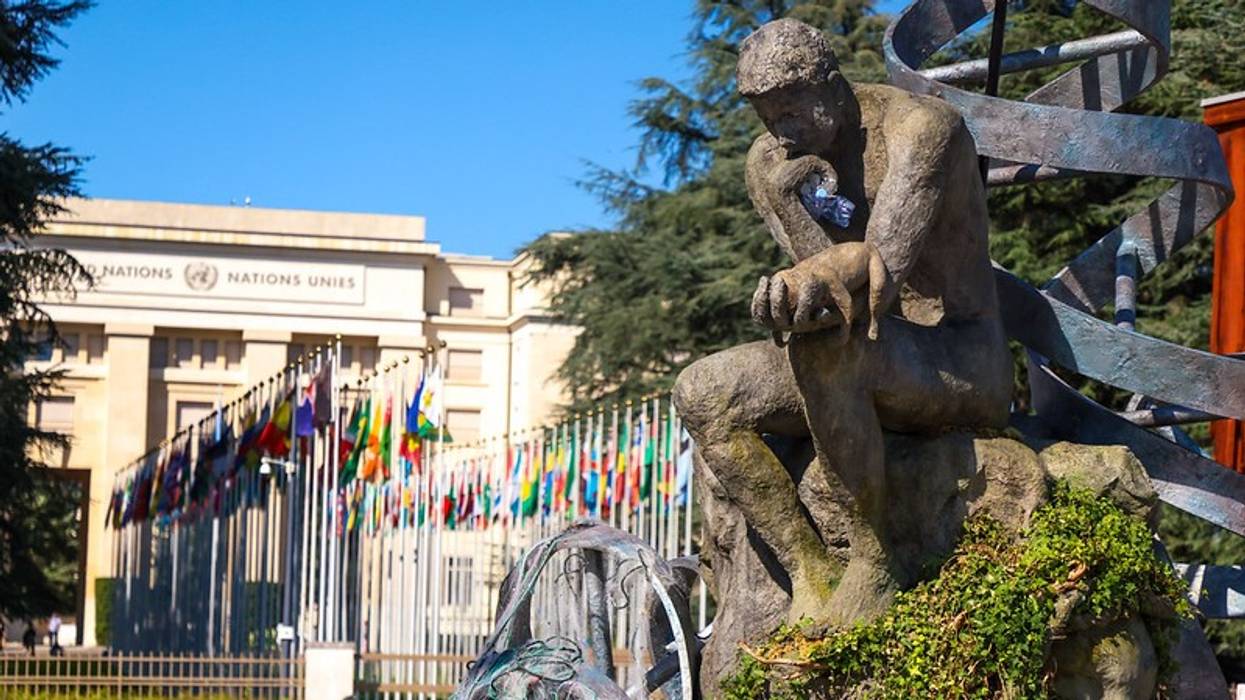
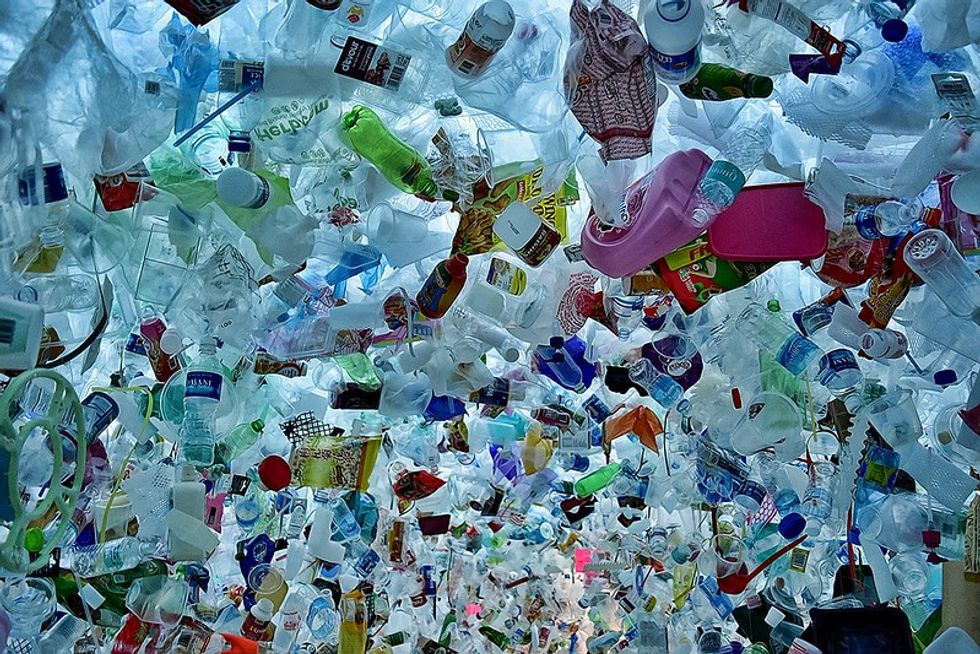 An installation of wasted materials turned into art by Tan Zi Xi is shown. (Photo by Choo Yut Shing/Flickr/CC BY-NC-SA 2.0)
An installation of wasted materials turned into art by Tan Zi Xi is shown. (Photo by Choo Yut Shing/Flickr/CC BY-NC-SA 2.0)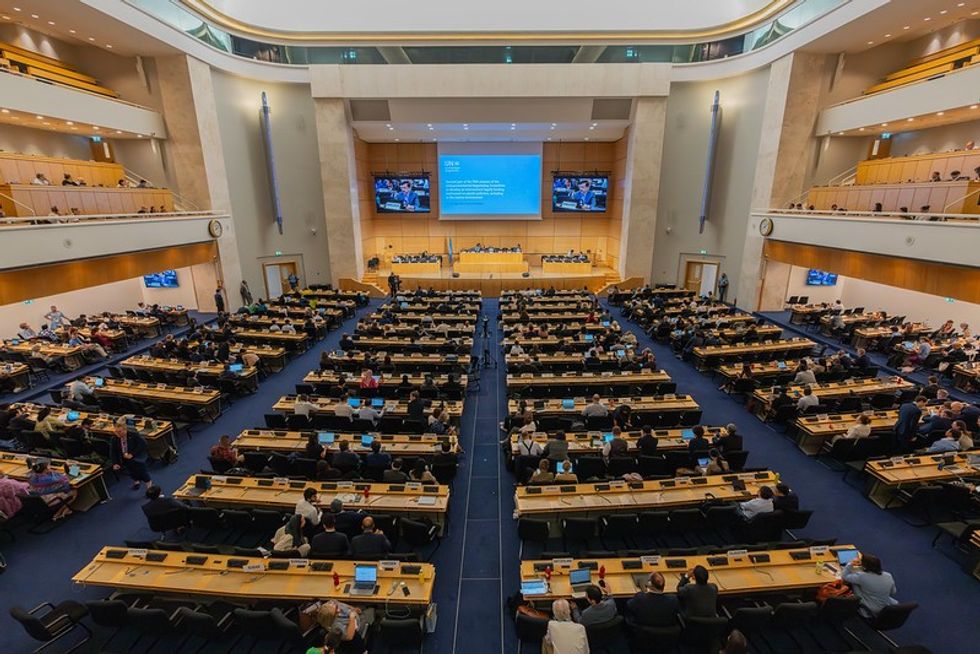 The UNEP INC-5.2 Plenary is shown. (Photo by Alejandro Laguna Lopez/UNEP/Flickr/CC BY-NC-SA 4.0)
The UNEP INC-5.2 Plenary is shown. (Photo by Alejandro Laguna Lopez/UNEP/Flickr/CC BY-NC-SA 4.0)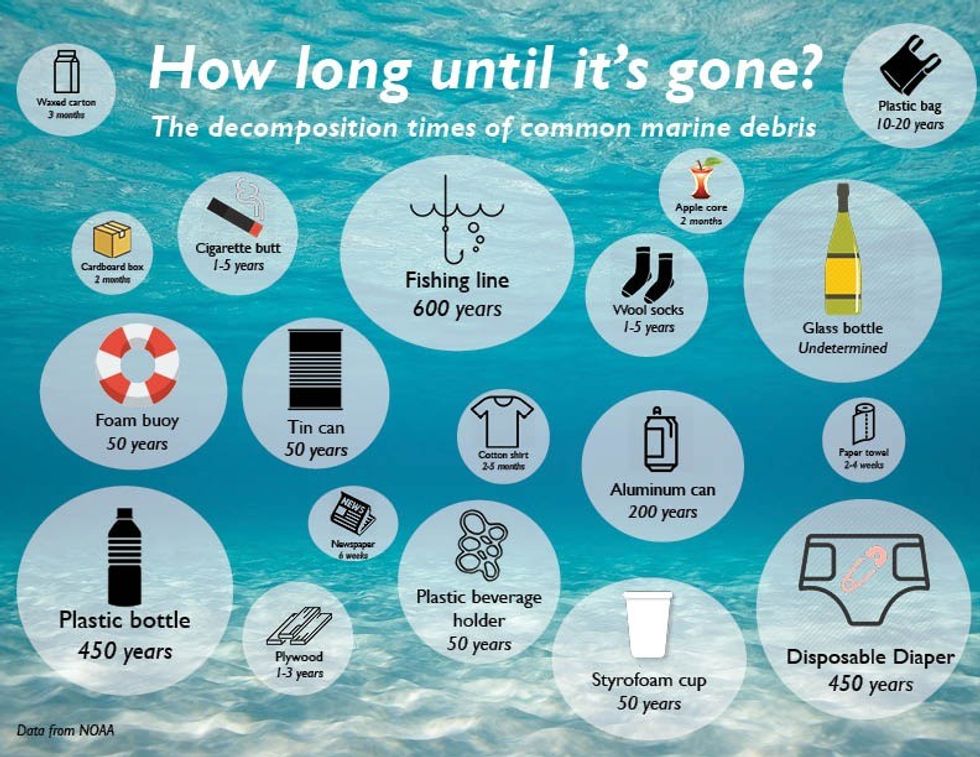 The decomposition times of marine debris are shown. (Photo by Zephyrschord/CC BY-SA 4.0)
The decomposition times of marine debris are shown. (Photo by Zephyrschord/CC BY-SA 4.0)